Annual Conference Program 2016
21 April 2016
Date: Wednesday 15th June 2016 Time: 09:00 - 20:00 Location: UCL Gustave Tuck Lecture Theatre and South Cloisters We welcome researchers, practitioners, NGOs, city professionals and the interested public to a day of thought-provoking discussions where our in-house and guest experts will present and discuss the latest research and issues in risk and disaster reduction.
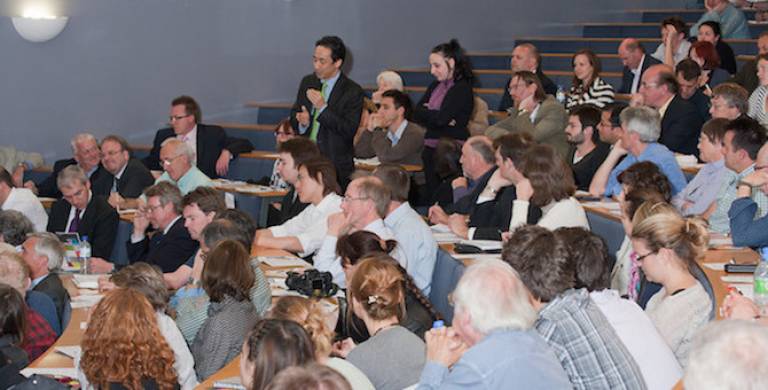
This year, our conference themes will be:
- Early warnings for natural disasters
- Emergency planning challenges
- How justice, human rights, and equality can improve resilience
- Raising and distributing funds in response to humanitarian crises
- Understanding disaster risk
Call for Abstracts for Poster Presentations
Call for abstracts for the poster session on, "Understanding disaster risk" is now open. We invite submissions relating to understanding any aspect of the causes of disasters, and understanding and assessing their impacts and associated risks. Abstracts should include a title, author names and affiliations, and main text no longer than 300 words, preferably without references. Please submit to Dr Robert Wicks (r.wicks@ucl.ac.uk) by Friday 20th May.
This event is free to attend, but you need to register.
Tweet about the conference on #IRDR6th
Speaker profiles:
Keynote: Saleh Saeed, CEO, Disasters Emergency Committee
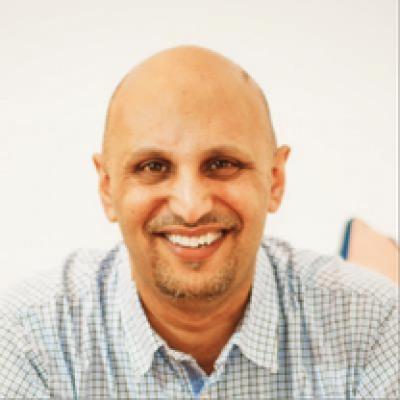
Saleh Saeed joined the Disasters Emergency
Committee as Chief Executive in September 2012. Since then the DEC have responded to five major emergencies as a consequence of the Syria Crisis, Philippines Typhoon, Gaza Crisis, Ebola outbreak and the Nepal Earthquake - raising over £262m for communities affected by crises. Prior to this he led DEC member
agency Islamic Relief Worldwide for nearly four years through a major period of
growth and organisational change. During this time he was ultimately
responsible for 1,500 staff based in 24 countries. In 2013, Saleh
was awarded an OBE, and in 2015 he received the Civil/ Third Sector Servant of
the Year at the British Muslim Awards.
Saleh will give the Keynote address on, "Raising and distributing funds in response to global disasters: challenges, lessons and triumphs" at 14:30
Dame Nicola Brewer, UCL Vice Provost (International)
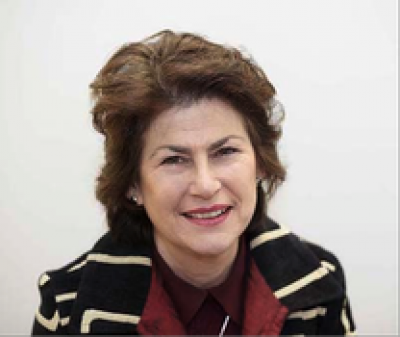
Before joining UCL in May
2014, Nicola was a senior diplomat at the Foreign and Commonwealth Office. She
was British High Commissioner to South Africa, Lesotho and Swaziland from May
2009 to September 2013.
As Vice-Provost (International), Nicola is responsible for UCL's Global Engagement Strategy: London's Global University working with partners to achieve fair solutions to global challenges. Nicola has lived and worked in South Africa, India, France and Mexico. She joined the board of the Department for International Development in 2002 as Director General Regional Programmes, and moved back to the FCO as Director General Europe in 2004. Nicola became the first Chief Executive of the Equality and Human Rights Commission in March 2007, a role she held until May 2009. Nicola read English at the University of Leeds, graduating with a BA in 1980. She subsequently read Linguistics at Leeds, taking a Doctorate in 1988. She was appointed Dame Commander of the Order of St Michael and St George (DCMG) in the 2011 Birthday Honours List. She is a Trustee of Sentebale, a charity founded by Prince Harry and Prince Seeiso of Lesotho. Sentebale helps vulnerable children, the forgotten victims of poverty and Lesotho's HIV/AIDS epidemic.
Nicola will be interviewed on how justice, human rights and equality can improve resilience in our in Conversation session at 16:00
Hamish Cameron, London Resilience Manager, Greater London Authority
Hamish Cameron is London Resilience Manager in the London Resilience Team (LRT) of the Greater London Authority. LRT coordinates the activities of the London Resilience Partnership. The partnership includes some 170 separate statutory organisations with responsibilities in an emergency. It consists of four GLA staff supported by subject matter experts from the emergency services and other organisations in London. Hamish has been in post since January 2011. This follows five years as a Local Authority Emergency Planner in different London boroughs. From 1993 - 2005 he was a United Nations Security Adviser responsible for assessing risks then preparing and implementing emergency plans in countries such as South Africa, Somalia, Ethiopia and East Timor. This followed an eleven year career as an Army Officer serving on operations in Northern Ireland, the Gulf and with the United Nations in the Former Yugoslavia.
Hamish will be a panellist in the session on "Emergency and Recovery Planning: New Challenges, New Approaches".
Mark Leigh, Faculty Director, Emergency Planning College
Mark Leigh had a military career before spending five years in the Civil Contingencies Secretariat, where he was an Assistant Director of Training and Doctrine. Since 2010 he has been the Director of the Faculty of Civil Protection and Crisis Management at the EPC. He runs the EPC's core curriculum, which spans all the disciplines of Integrated Emergency Management (risk, planning, responding and recovery), business continuity and exercising. He is also responsible for most of the EPC's bespoke training delivered for UK clients and partners. His faculty has a team of 30 lecturers and fellows, to service a programme of well over 150 courses and learning events per year. Mark directs the EPC's cross-curricula strategic projects, including organisational resilience, multi-agency working and its highly successful thought leadership strategy. He has published on a number of subjects and in the field of Civil Protection his main interests lie in the public understanding of risk, leadership in multi-agency working and strategic decision-making. He has published on all of these themes recently, in papers, guidance and standards. He is a qualified further education teacher and has four university degrees.
Mark will be a panellist in the session "Emergency and Recovery Planning: New Challenges, New Approaches".
Tony Thompson, Chairman, The Emergency Planning Society
Tony Thompson took over the role of Chair of the Emergency Planning Society in February 2015. He has worked most of life in the emergency and resilience field at the strategic, tactical and operational levels. He is a former superintendent in the British Transport Police (BTP) and has first-hand experience at many of Britain's major train disasters including Clapham Junction (1988) - where he was the BTP incident commander, Severn Tunnel Collision (1991), Ladbroke Grove (1999) and Great Heck//Selby (2001). He was one of the first members of the UK Police Major Disaster Advisory Team when it was set up in 1993 and remained for a 10-year period until he took early retirement in 2002.
In 2003, he joined the then Office of the Deputy Prime Minister as a Deputy Director in Bristol. He established the Regional Resilience Team for South West England, as part of the government's new resilience arrangements for wide-area and large-scale emergencies in the English regions. He was the regional lead for central government during the response to the Boscastle floods in North Cornwall in 2004, and orchestrated the inception of the Regional Resilience Forum for the South West.
In 2005, he took up the post of Head of UK Emergency Response and Resilience for the British Red Cross, based at their UK Office in London. This strategic role required him to work closely with the UK's Foreign and Commonwealth Office and other government departments to provide Red Cross humanitarian support in the aftermath of many major emergencies, including the Indian Ocean Tsunami (2004), the Pakistan Earthquake (2005), the London Bombings (2005) and the UK floods (2007). In the response to the London bombings he was the Gold commander for the British Red Cross. He had an active role in the development of a government-funded scheme to provide financial support to British victims of terrorist acts abroad, and managed the British Red Cross Psycho-social Support Team which gives practical and emotional support to British nationals affected by emergencies anywhere in the world.
In 2008, he worked in the Middle East as principal security consultant for a major project for the Critical National Infrastructure Authority based in Abu Dhabi. This included the provision of emergency management training. Tony is now based in the UK and continues to work in emergency management, resilience and related disciplines. He holds a Masters Degree in Civil Emergency Management and a degree in English law.
Tony will be a panellist in the session "Emergency and Recovery Planning: New Challenges, New Approaches".
Professor Aldo Zollo, Professor of Seismology, University of Naples
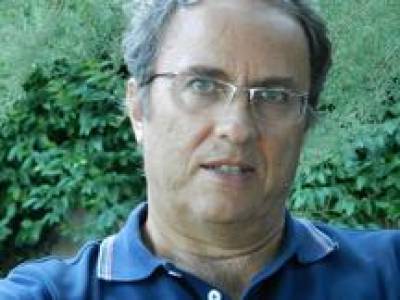
Aldo Zollo is Full Professor of Seismology and Digital Signal Processing at the University of Naples "Federico II". In his research, he deals with theoretical and experimental aspects of seismic wave propagation and fracture processes of the Earth's crust that occur during earthquakes. He has been responsible for several research projects funded by national and international agencies in the areas of seismic exploration of volcanoes, the seismic source process modeling and the development of early warning systems for earthquake prevention.
He has been the member of the National Group of Experts for the Evaluation of the Research for the "Earth Sciences" area (GEV04) in Italy, the National Commission for Forecasting and Preventing Great Risks nominated by the President of the Council of Ministers, the Scientific Councils of INGV (Italy) and ISTerre (France) . He has been the Editor of the Geophysical Research Letters (Solid Earth). In 2007, the President of the Republic awarded him the honor of "Commendatore della Repubblica Italiana" for scientific merit.
Aldo Zollo is the author of more than 160 publications on Italian and international scientific journals. He is the author/editor of six books, among which the university textbook (in Italian) "Terremoti e Onde: Metodi e pratica della sismologia moderna" (Earthquake and Waves: Methods and Practices of Modern Seismology) edited by Liguori ed., Naples.
The complete record of publications on JCR journals is available at: http://www.researcherid.com/rid/B-5344-2010
Aldo will speak in session entitled 'Early Warning Systems for Disasters: Integrating Perspectives from Across Disciplines'.
Dr Gordon Woo, Catastrophist, Risk Management Solutions
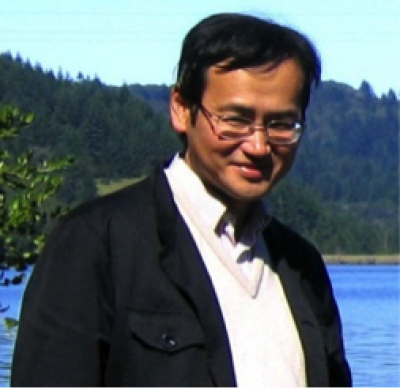
Gordon Woo specializes in the assessment and management of extreme risks, both natural and man-made. As both a scientist and a risk analyst, he bridges the knowledge gap between hazard experts and risk stakeholders. Recent contributions in earthquake risk mitigation have been a study of the cost-effectiveness of a Californian earthquake early warning system, and an analysis of public engagement in operational earthquake forecasting.
He is the author of the two books, 'The Mathematics of Natural Catastrophes', published by Imperial College Press in 1999, and 'Calculating Catastrophe', published by Imperial College Press for the tenth anniversary of 9/11. Dr. Woo was a top mathematics graduate at Cambridge University, completed his PhD at MIT as a Kennedy Scholar, and was a member of the Harvard Society of Fellows. He is currently an adjunct professor at NTU, Singapore, as well as a visiting professor at University College London.
Gordon will speak in the session entitled 'Early Warning Systems for Disasters: Integrating Perspectives from Across Disciplines'.
Professor Maureen Fordham, Professor of Gender and Resilience, Northumbria University
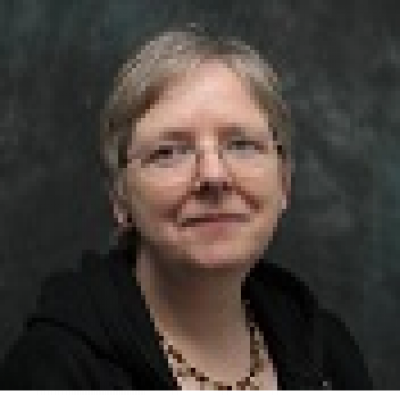
Maureen Fordham BSc PhD is Professor of Gender and Disaster Resilience. She has been researching disasters since 1988. She has a particular interest in marginalized and, so-called, vulnerable groups in disaster including women and children in particular. She was a founding member of the Gender and Disaster Network in 1997 and is the coordinator of its website (www.gdnonline.org) and activities. She is a frequent participant in gender and disaster policy level meetings within the UN system as well as nationally and internationally. She has edited, and is on the editorial boards of, international disaster-related journals.
Maureen will speak in the session entitled 'Early Warning Systems for Disasters: Integrating Perspectives from Across Disciplines'.
Jo Adetunji, Deputy Editor, The Conversation UK
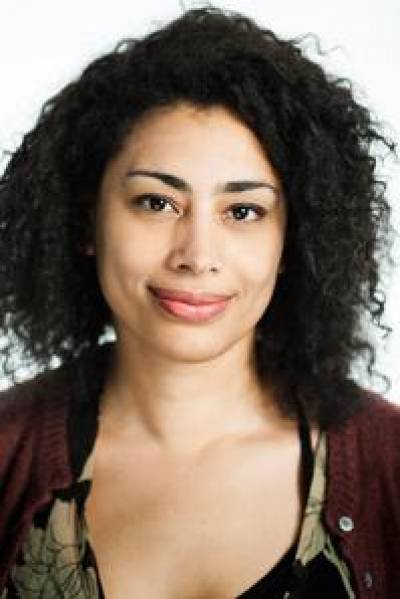
Jo Adetunji is Deputy Editor of The Conversation UK, which is an independent source of news and views, sourced from the academic and research community and delivered direct to the public. Before joining The Conversation UK, Jo Adetunji worked as a reporter and editor at the Guardian, covering stories from UK knife crime to the Arab Spring. She was also associate editor of the Guardian's Public network, focused on the civil service. She has also written for The Times, The Independent and Telegraph newspapers.
Jo will be the interviewer for the in conversation with Dame Nicola Brewer on How Justice, Human Rights and Equality can improve Resilience.
Prof. Stefano Parolai, Centre for Early Warning Systems, GFZ German Research Centre for Geosciences
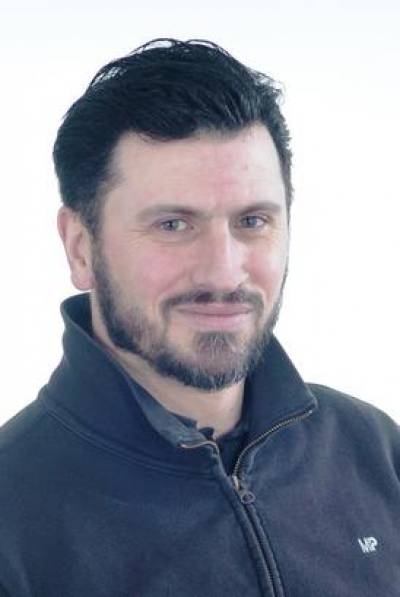
Stefano Parolai obtained his diploma in geological sciences (1993) and a PhD in geophysics (1997) from the University of Genoa, Italy. Since 2000, he has worked at the GFZ German Research Centre for Geosciences in the fields of engineering seismology, seismic risk and early warning. In 2009 he was awarded a Professorship in Engineering Seismology at the TU Berlin. He is currently a senior scientist and the head of the Centre for Early Warning Systems (Section 7.1) at GFZ. Stefano is the coordinator of the Earthquake Model Central Asia initiative, which is concerned with seismic risk assessment in Central Asia, the SIBYL (SeIsmic monitoring and vulneraBilitY framework for civiL protection) project within EC-ECHO, and was a work package leader within the FP7 MATRIX (New Multi-Hazard and Multi-Risk Assessment Methods for Europe) project. In addition, Stefano is the General Secretary of the European Seismological Commission.
Stefano is the author of more than 130 publications on international scientific journals. He is Associate Editor for the Bulletin of the Seismological Society of America (since 2008) and for Annals of Geophysics (since 2013).
Stefano will speak in session entitled 'Early Warning Systems for Disasters: Integrating Perspectives from Across Disciplines'.
Annual Conference Program 2016
| 09:00-09:20 | Registration |
|
09:20-09:30 |
Welcome from Peter Sammonds, Director, UCL IRDR |
| 09:30-11:00 | Early Warning Systems for Disasters: Integrating Perspectives from Across Disciplines. Session Chairs: Dr Carmine Galasso and Dr Zehra Zaidi |
| 11:00-11:30 | Coffee |
| 11:30-13:00 | Panel Discussion on The Challenges of Planning for an Emergency. Session Chair: Professor David Alexander |
| 13:00-14:30 | Lunch (not provided) |
| 14:30-15:30 | Keynote address on "Raising and distributing funds in response to global disasters: challenges, lessons and triumphs" by Saleh Saeed, OBE, Director, Disasters Emergency Committee |
| 15:30-16:00 | Coffee |
| 16:00-17:00 | In Conversation with Dame Nicola Brewer, UCL Vice Provost International, on How Justice, Human Rights and Equality can improve Resilience |
| 17:00-17:30 | Poster introductions |
| 17:30-20:00 | Reception with poster presentations, drinks and canapés |
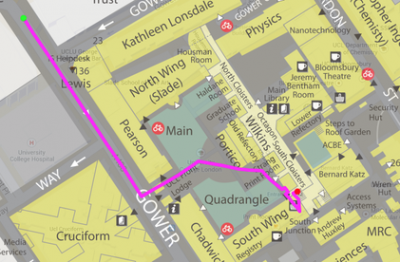
 Close
Close







